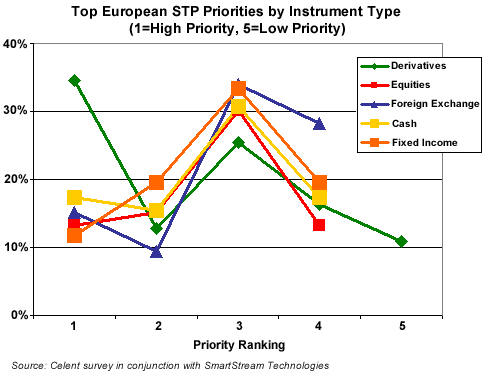European Post-Trade Processing: STP in the Back and Middle Office
Abstract
European banks and asset managers are neglecting STP projects despite the growing importance of these initiatives in the back and middle office.
European financial institutions must improve automation and adopt standards to mitigate operational risk, lower operational costs, and improve compliance. Straight-through processing (STP) is key to reaching these goals. However, a new report from Celent reveals that European banks and asset management firms are not allocating sufficient attention to back and middle office STP initiatives.
According to the new Celent report, European Post-Trade Processing STP in the Back and Middle Office, increasingly complex transactions, inaccurate data, dwindling budgets and operational divisions have prevented European banks and asset managers from advancing STP from concept to reality. The lack of STP is most notable among derivatives. According to the report, which culls information from a survey of European firms in conjunction with SmartStream Technologies, there is a pervasive failure to achieve STP for derivatives. The majority of respondents indicated that less than 50% of derivatives processing is automated, according to the survey. The lack of STP in derivatives was mainly attributed to the complexity of transactions and lack of standards. As a result, 35% of respondents cited derivatives as the number one priority for STP projects as opposed to other instrument classes.
The study also illustrates that equities, fixed income and foreign exchange are benefiting from relatively high levels of STP but still need improvement. "All regions of Europe still have a lot of work to do to automate transactions in the back and middle office," says David Easthope, analyst at Celent and lead author of the report.

The survey, based on interviews of over 80 senior executives from a cross section of European institutions in conjunction with SmartStream Technologies, identifies the most common barriers to STP across instrument types, including derivatives, equities, foreign exchange, cash, and fixed income.
The report is 51 pages long and contains 36 figures and 5 tables. A table of contents is available online.

